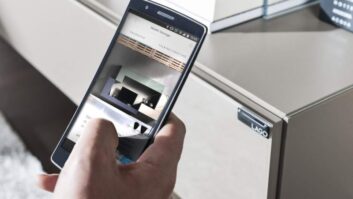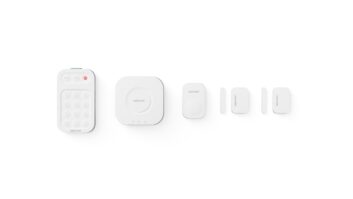
In the U.S., about 43 million people — 18 percent of Americans aged 18 and older — now own a smart speaker. That’s according to the recently released “Smart Audio Report” from NPR and Edison Research.
The report divvied smart speaker owners by length of ownership to determine if the habits varied.
The report queried respondents about listening habits, and 25 percent of First Adopters said that smart speakers were the primary device they use to listen, compared to 17 percent who favor AM/FM radio and 23 percent who use either their smartphone or tablet most often. Among Early Mainstreamers, the most popular option is actually the smartphone/tablet at 26 percent, followed by smart speakers at 22 percent, and AM/FM radio at 17 percent.
See also: These Are The 6 Fastest-Growing Smart-Home Categories
While some in the radio industry are optimistic about smart speakers, others are concerned that the technology is displacing listeners who will not tune in via a different platform. This study indicates there may be some truth to that fear. In fact, 40 percent of First Adopters and 45 percent of Early Mainstream users said their smart speaker was replacing time they had previously spent listening to traditional AM/FM radio.
This isn’t entirely surprising. Some of the most popular smart speaker functions mirror the services traditionally provided by radio. For example, 90 percent of First Adopters and 89 percent of Early Mainstream have asked their smart speaker to play music. Weather reports were also requested by 81 percent of First Adopters and 85 percent of Mainstreamers, and checking the time was also a common ask at more than 60 percent.
More than half of both groups asked for news updates; but only 41 percent of First Adopters and 47 percent of Early Mainstreamers said they have used the speaker to listen to an AM/FM radio station. In addition to many other tasks, users also said they checked on sports scores and traffic in the past week.
Excerpts from the “Smart Audio Report”
Peruse this gallery to learn more and check out some graphs from the NPR/Edison Research survey of smart speaker owners.
Podcasts do not seem to be especially popular among smart speaker owners. Only 6 percent of First Adopters and 4 percent of the Early Mainstream said they listen to podcasts several times per day. The most common answer was never listening to podcasts — 37 percent of First Adopters chose this option, and 30 percent of Early Mainstreamer also indicated this frequency. With that in mind, 60 percent of First Adopter and 74 percent of Early Mainstream podcast listeners say they choose to start to play a podcast directly via the smart speaker, rather than through the smartphone and then connecting to the speaker.
However, 63 percent of First Adopters and 70 percent of the Early Mainstream group agreed that they have been listening to more audio since they got the smart speaker.
The “Smart Audio Report” also explored attitudes toward different types of advertising. The most popular type appears to be the skills or features created by brands; 22 percent said they like them, and 59 percent said they don’t mind them. TV commercials appear to be the most hated — 45 percent said they don’t like them and only 6 percent like them.
However, ad breaks on commercial radio aren’t popular, either; 42 percent said they dislike them and 8 percent like them, with 50 percent who are ambivalent. Public radio sponsorships/underwriting fared a bit better: 57 percent said they don’t mind them, but 34 percent still dislike these ads.
See also: Everything You Need To Know About Smart Speakers & How Consumers Use Them
Methodology & Other Stats
The report is based on survey of 909 smart speaker owners aged 18 years and older. It was conducted in late May and early June of this year.
According to this data, there were not significant differences in the age groups that own a smart speaker. But it’s perhaps surprising that only 18 percent of those surveyed were millennials, while those 45-54 made up the largest cohort at 24 percent.
Another unexpected stat: 54 percent of those surveyed identified as women, defying the trope that men tend to be the techies.
Looking for more stories like this? Sign up for our newsletters to receive them in your inbox.



















